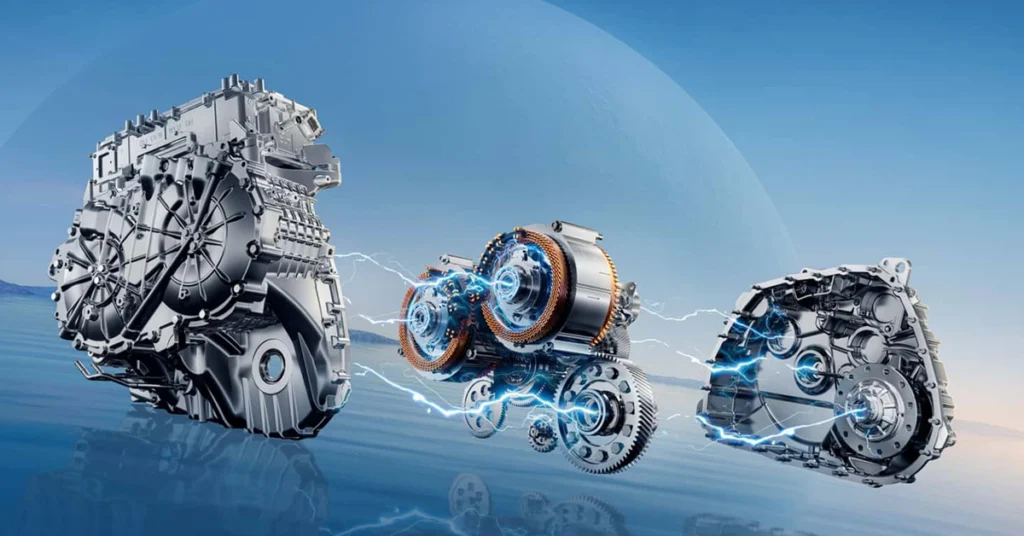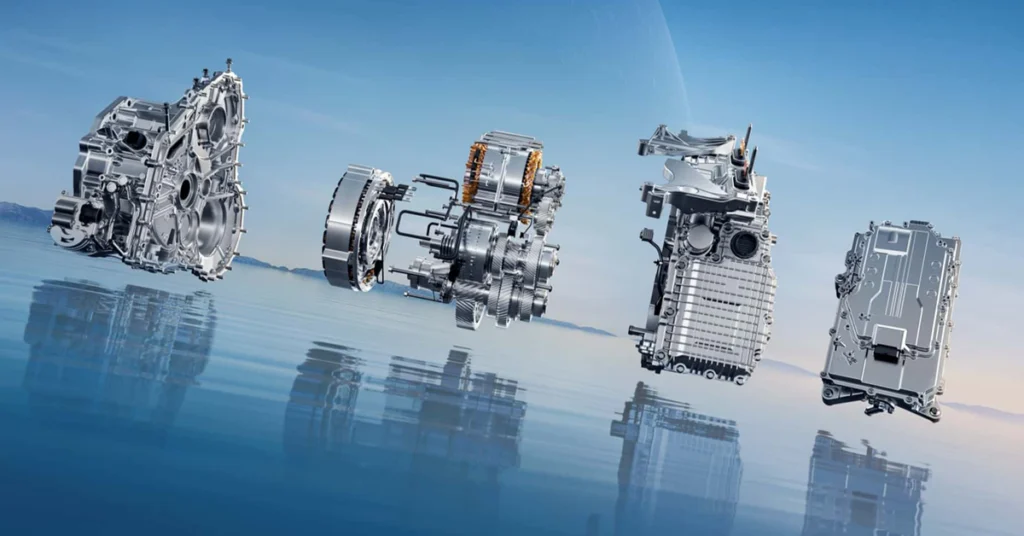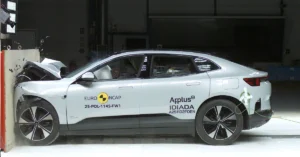(Image Source: Omoda & Jaecoo’s)
In a world obsessed with electrification, Omoda & Jaecoo have just reminded everyone that the internal-combustion engine still has a few brilliant tricks left. Unveiled at the 2025 International User Summit, the brand’s new Super Hybrid Engine stunned engineers and journalists alike with a headline-grabbing figure: 48 percent thermal efficiency. That’s a number no major carmaker has yet reached in a production-ready design.
For a company best known for its bold EV ambitions under the Chery Group umbrella, this breakthrough feels like a quiet revolution a nod to the idea that sustainability isn’t just about batteries; it’s about smarter combustion. The message is clear: the engine isn’t dead. It’s getting smarter, cleaner, and significantly more efficient.
The Engine That Defies Expectations
Omoda & Jaecoo, two sibling brands born from Chery Group’s global expansion, have built a reputation for marrying futuristic design with solid hybrid tech. Their latest project goes further, targeting the heart of combustion science.
At the summit, engineers revealed an all-new internal-combustion platform developed for hybrid applications, boasting a record-setting 48 % thermal efficiency well above the industry’s usual 38–45 % range.
Why does this matter? Because in practical terms, every single percentage point of efficiency improvement translates to roughly 2.5 % less fuel consumption. That means cleaner emissions, smaller fuel bills, and a real-world environmental impact.
Omoda & Jaecoo’s objective is simple but ambitious: redefine sustainability by getting more energy out of every drop of petrol, while keeping hybrids relevant for a world that still lacks universal charging infrastructure.
The Science Behind the Numbers
Breaking efficiency records isn’t about magic; it’s about physics done brilliantly. Here’s what makes Omoda & Jaecoo’s new combustion system so special:
- Ultra-high compression ratio: 26 : 1 among the highest in any passenger-car engine, ensuring maximum energy extraction from combustion gases.
- Triple-link hyperbolic mechanism: smooths out torque delivery while reducing friction losses, helping convert more heat into useful power.
- 35 % Exhaust Gas Recirculation (EGR): lowers combustion temperature to cut nitrogen-oxide emissions and boost longevity.
- Thermal-insulation coatings: retain heat where it’s needed most, minimizing waste energy.
For context, Toyota’s Dynamic Force engines and Mazda’s Skyactiv-X sit around 41–43 % efficiency. Achieving forty-eight represents a massive technological leap.
According to engineers familiar with the project, Omoda & Jaecoo also refined ignition timing, piston geometry, and cooling channels to reduce hotspots and turbulence losses. These are incremental tweaks individually but together, they’ve built one of the most advanced combustion systems on Earth.
The SHS Super Hybrid System in Action

(Image Source: Omoda & Jaecoo’s)
Of course, thermal efficiency on paper means little without real-world validation. That’s where Omoda & Jaecoo’s SHS (Super Hybrid System) comes in. Already deployed in select prototypes, the SHS blends electric smoothness with combustion stamina.
- 1.5 TDGI engine operating on the Miller cycle for higher expansion efficiency.
- Two electric motors delivering instant torque and regenerative braking.
- Intelligent DHT transmission coordinating gear shifts and power flow seamlessly.
- Thermal efficiency: 44.5 % in production form.
- Fuel consumption: around 6 L / 100 km under mixed conditions.
- All-electric range: 90 km enough for a daily urban commute.
- V2L (Vehicle-to-Load) output: 3.3 kW, allowing drivers to power camping gear or tools off-grid.
Imagine a family road trip: cruising silently on battery power through city streets, then letting the petrol engine engage effortlessly for highway stretches. The transition is near invisible, yet the gains in range and efficiency are huge.
The Efficiency Dilemma: Why Hybrids Still Matter
Despite rapid EV adoption, hybrids continue to dominate markets where infrastructure and cost remain barriers. According to the International Energy Agency’s Hybrid Outlook 2025, hybrids will play a “critical bridging role” until at least 2035.
Problem: Pure EVs promise zero tailpipe emissions, but charging times, battery wear, and grid readiness still frustrate many users especially fleet operators and intercity commuters.
Agitate: Drivers want the convenience and range of petrol with the conscience of electric. Yet traditional engines remain inefficient, wasting over half their energy as heat.
Solution: Omoda & Jaecoo’s 48 % engine provides that middle ground. By boosting efficiency instead of abandoning combustion, hybrids can deliver meaningful CO₂ cuts today while keeping vehicles affordable. It’s not a stopgap it’s a smarter evolution.
Safety and Durability Innovations
Efficiency is one thing; reliability is another. The new hybrid platform was built to last.
- The battery pack is designed to endure extreme heat, shocks, and even water immersion, ideal for tough global climates.
- A rapid electrical cut-off disconnects the power supply within two milliseconds of an impact, minimizing post-collision risk.
- Smart thermal management keeps both the combustion engine and hybrid components in their optimal zones, extending component life.
This philosophy mirrors approaches used by Honda’s e:HEV and Hyundai’s Smartstream Hybrid, but Omoda & Jaecoo’s execution focuses on modularity making upgrades easier as technology evolves.
Why This Matters – The Future of Combustion
While the world accelerates toward electrification, efficiency remains the quiet revolution inside every powertrain lab. Omoda & Jaecoo’s achievement doesn’t fight against the EV wave it complements it. Higher efficiency means lower emissions per kilometre and less pressure on global energy resources.
According to early cost estimates, the integration of this new combustion technology adds roughly USD 1,800–2,500 to a hybrid vehicle’s manufacturing bill. That suggests future SHS-based models could start under USD 25,000, making them both advanced and accessible.
In short, this isn’t the end of the combustion era it’s its most intelligent chapter yet.
Key Technical Data Sheet
| Specification | Details |
| Manufacturer | Omoda & Jaecoo (Chery Group) |
| Engine Type | 1.5 TDGI Miller-cycle Hybrid |
| Compression Ratio | 26 : 1 |
| Thermal Efficiency (Max) | 48 % |
| System Type | SHS Super Hybrid System |
| Electric Motors | Dual Motor Setup |
| Transmission | Intelligent DHT Automatic |
| All-Electric Range | 90 km |
| Fuel Consumption | 6 L / 100 km |
| V2L Output | 3.3 kW |
| EGR Rate | 35 % |
| Estimated Launch Pricing | From USD 25,000 (vehicle level) |
FAQ
Q: What makes Omoda & Jaecoo’s engine so special?
It’s the first combustion design to reach 48 % thermal efficiency, extracting nearly half of fuel energy as mechanical work something previously considered unattainable.
Q: How does that translate to real-world savings?
Expect roughly 10–15 % lower fuel consumption and proportionally reduced emissions compared with today’s leading hybrids.
Q: Is this technology limited to hybrids?
Yes, the system is optimized for hybrid configurations, where electric assistance enhances overall output and economy.
Q: When will it hit showrooms?
Global rollout is projected for 2026, with first applications in select Asian and European hybrid crossovers.
Editor’s Verdict
Omoda & Jaecoo’s Super Hybrid Engine isn’t just a clever lab project it’s proof that combustion innovation is alive and thriving. By achieving 48 percent thermal efficiency, the brand positions itself among the elite few shaping the next decade of propulsion. If these numbers hold up in production, this could be the single most influential hybrid breakthrough of 2025.
Where Innovation Meets Reliability
In the UAE’s demanding heat, maintaining top efficiency is more than a bragging right it’s a survival skill. MotorHub connects you with certified garages specializing in hybrid diagnostics, combustion tuning, and battery inspection. Whether you drive a plug-in EV or a next-gen hybrid like Omoda & Jaecoo’s, our service partners ensure your vehicle delivers both performance and longevity in local conditions.
Stay updated on the latest hybrid and EV technologies at MotorHub UAE and keep your car future-ready.


